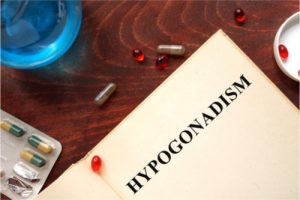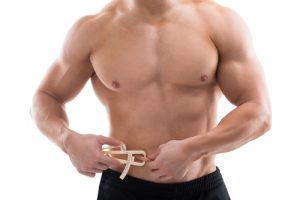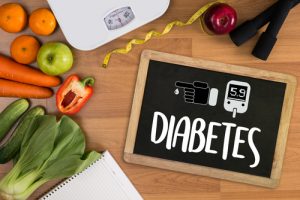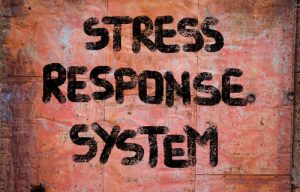 Male Hypogonadism is a relatively common medical condition that afflicts men of all ages but is most common among men forty and over.
Male Hypogonadism is a relatively common medical condition that afflicts men of all ages but is most common among men forty and over.
Symptomatic Testosterone Deficiency is believed to afflict 5% of men in America but becomes increasingly likely as men grow older.
It's estimated that around 6.5 million men across the United States struggle with Low-T. By age 70, almost 20% of men have significant symptoms directly attributable to declining Testosterone Levels.
Video Link: https://vimeo.com/289763294
Video Download: Click Here To Download Video
Video Stream: Click Here To Stream Video
Types of Hypogonadism: Primary and Secondary Hypogonadism
Primary Hypogonadism
Primary Hypogonadism is any form of Testosterone Deficiency that results in a direct inability of the testes to adequately produce Testosterone.
Primary Hypogonadism is often the result of genetic conditions such as Klinefelter's syndrome, which is the result of boys conceived with two X chromosomes.
In adults, Primary Hypogonadism is generally the result of conditions that  directly impact or damage the testes, such as cancer, radiation treatments, surgery, and physical trauma.
directly impact or damage the testes, such as cancer, radiation treatments, surgery, and physical trauma.
There are also many medications that can suppress testicular activity, such as neoplastic agents (including busulfan, cyclophosphamide, cisplatin, and chlorambucil), ketoconazole, and glucocorticoids.
Secondary Hypogonadism
Secondary Hypogonadism is the most common form of Testosterone Deficiency. Rather than being a deficiency directly related to impaired testicular function, Secondary Hypogonadism is the result of impaired upstream signaling, resulting primarily from diminished or non-production of Gonadotropin-Releasing Hormone (GnRH).
In many cases, Low Testosterone Levels are paired with low levels of Follicle-Stimulating Hormone and Luteinizing Hormone in the case of Secondary Hypogonadism.
While Secondary Hypogonadism can be the result of congenital issues, this is quite rare. In children and adults, many medications can impair Testosterone Production via the suppression of Testosterone Secretagogues, including opiates, glucocorticoids, and steroids.
The most-experienced form of Secondary Hypogonadism is Andropause, also known as Age-Related Testosterone Deficiency. As men grow older, their ability to produce Testosterone naturally diminishes slowly over time, a direct result of reduced upstream signaling to the testes and adrenal glands for Testosterone Production.
Symptoms of Hypogonadism in Men
 Because Testosterone is the primary source of physiological masculinity, Testosterone Deficiency has widespread effects on form and function.
Because Testosterone is the primary source of physiological masculinity, Testosterone Deficiency has widespread effects on form and function.
The most well-known aspects of Hypogonadism are low libido and sexual dysfunction, but Low-T causes far more significant and broader issues. Testosterone promotes healthy body composition, and when Testosterone Levels fall too far, it leads to both increased body fat and reduced muscle mass. Psychologically, hypogonadism is strongly associated with depression, anxiety, and trouble sleeping.
Testosterone also has a substantial protective effect on the heart, and Hypogonadism has a dangerous correlation with a heart attack and heart disease. Significant Hypogonadism can lead to fertility issues, anemia, auxiliary hair loss, and more.
The symptoms of Hypogonadism are also strongly associated with age-of-onset. Children suffering from Hypogonadism experience delayed the onset of puberty, femininization, and other significant symptoms resulting from the developmental influence of Testosterone during adolescence.
These symptoms can be relieved via Testosterone Replacement Therapy. Prenatal Testosterone Deficiency is generally the result of genetic defects and can have extreme developmental consequences.
Obesity, Bodyfat, and Hypogonadism
A primary risk factor for Testosterone Deficiency and Low-T is Obesity. Adipose fat cells, which congregate around the hips and midsection, have a nasty side-effect of converting Testosterone into Estrogen.
In healthy body composition, there is a balance that strongly favors normal Testosterone Levels. The more that you weigh, however, the stronger of an influence that body fat has upon your Serum Testosterone.
If you are overweight or obese, one of the best things that you can do to improve your Testosterone Balance is to lose weight.
Diabetes and Hypogonadism
Diabetes is a chronic medical condition that has a significant impact on  Testosterone Levels. Just being overweight or obese increases the risk of Low-T, but the threats compound with Diabetes.
Testosterone Levels. Just being overweight or obese increases the risk of Low-T, but the threats compound with Diabetes.
Studies have shown that around 1/3rd of patients that are simultaneously obese and suffering from Type-2 Diabetes struggle with significant Testosterone Deficiency.
If you are experiencing diabetes and are overweight, losing weight can help increase Testosterone Levels, but it still appears that Type-2 Diabetes has a negative influence on Testosterone Levels at any bodyweight.
Recent studies have shown that Bio-Identical Testosterone may have a positive impact on wellness and health among Type-2 Diabetes Patients.
Alcohol and Hypogonadism
Drinking has a negative impact on Testosterone Production and contributes to Hypogonadism. Drinking too much alcohol suppresses the function of the testes, which leads not only to suppressed Testosterone Production but also diminished fertility and sperm count.
Alcoholism can even directly damage testicular tissue. It's a common issue among heavy drinkers to have an impaired libido. If you are a moderate to heavy drinker and have been having problems with erectile dysfunction and low libido, cutting back on alcohol may have a miraculous effect on your sexual function.
Sedentary Lifestyle and Testosterone Deficiency
Testosterone is produced mainly as a consequence of physical activity. Your body responds to physical exertion of the muscles by elevating Testosterone Production. Exercises that work out large groups of muscles have been shown to provide a burst of Testosterone.
On the other hand, this means that an inactive lifestyle has a tremendously negative impact on Testosterone Levels. Sadly, this phenomenon feeds upon itself.
If you aren't up and moving, your body isn't making Testosterone. If your body doesn't produce enough Testosterone, then you'll have significant issues with fatigue and diminished exercise capacity.
The best way to combat this cause of Hypogonadism is to force yourself to get up and to move by any means necessary. Start slow, and you'll find yourself energized and happier in no time!
Stress and Testosterone Deficiency
 One of the primary factors of hormone imbalance is stress.
One of the primary factors of hormone imbalance is stress.
The human body ultimately has a maximum reserve of hormones that it can produce.
Many of these hormones are highly beneficial to preserving your long-term health, including Testosterone and Human Growth Hormone. Others deliver benefits in the short term, like Endorphins and Cortisol. Cortisol is the body's primary response to stress.
It prepares the human body for fight-or-flight. It sets you up for snap decisions and decisive action. The problem with Cortisol is when you produce too much of it too frequently.
Physical and psychological stress are intrinsically linked, and too much of either for too long will have a negative impact on your long-term hormone balance.
If you live a lifestyle that's high in stress, or you have issues with stress management, then taking steps to improve your stress levels will have a positive impact on your hormone balance.
Contact Us Today For A Free Consultation

- BioSante Pharmaceuticals, Inc. to Present at BIO Investor Forum [Last Updated On: March 16th, 2025] [Originally Added On: October 9th, 2012]
- Secondary osteoporosis: More than what meets the eye! [Last Updated On: March 16th, 2025] [Originally Added On: October 10th, 2012]
- Trimel Provides Clinical and Operational Update [Last Updated On: March 16th, 2025] [Originally Added On: October 15th, 2012]
- Obese teen boys likelier to become impotent and infertile adults [Last Updated On: March 16th, 2025] [Originally Added On: October 17th, 2012]
- Obese teen boys have up to 50 percent less testosterone than lean boys [Last Updated On: March 16th, 2025] [Originally Added On: October 17th, 2012]
- Trimel Reports Physician Market Research Results for CompleoTRT(TM) [Last Updated On: March 16th, 2025] [Originally Added On: October 24th, 2012]
- Obese teen boys likelier to turn into 'impotent' men [Last Updated On: March 16th, 2025] [Originally Added On: October 24th, 2012]
- Trimel Pharmaceuticals Corporation to Report Third Quarter 2012 Results and Host a Conference Call to Update Investors [Last Updated On: March 16th, 2025] [Originally Added On: November 2nd, 2012]
- Peer Exchange: Establishing Bone Health Clinics - Video [Last Updated On: March 16th, 2025] [Originally Added On: November 2nd, 2012]
- What is hypogonadism and how does it affect fertility? - Video [Last Updated On: March 16th, 2025] [Originally Added On: November 2nd, 2012]
- Low Testosterone in Men or Man-O-Pause - Video [Last Updated On: March 16th, 2025] [Originally Added On: November 2nd, 2012]
- Propecia (Finasteride) -- Undisclosed Mechanisms, Potential Dangers [Last Updated On: March 16th, 2025] [Originally Added On: November 2nd, 2012]
- How to Get Ripped - Why You Shouldnt Use Anabolic Steroids - Video [Last Updated On: March 16th, 2025] [Originally Added On: November 2nd, 2012]
- Future Doc: Andropause Alternatives with Dr. James Biddle Part 1 - Video [Last Updated On: March 16th, 2025] [Originally Added On: November 2nd, 2012]
- Increase Testosterone Naturally With these Diet And Workout Secrets - Video [Last Updated On: March 16th, 2025] [Originally Added On: November 2nd, 2012]
- Sector Update: Healthcare - Video [Last Updated On: March 16th, 2025] [Originally Added On: November 2nd, 2012]
- Signs And Symptoms of Hypogonadism [Last Updated On: March 16th, 2025] [Originally Added On: November 2nd, 2012]
- Auxilium and Pfizer Will Conclude Agreement on XIAPEX® EU Collaboration [Last Updated On: March 16th, 2025] [Originally Added On: November 9th, 2012]
- Repros Therapeutics Inc.(R) Reports Third Quarter 2012 Financial Results [Last Updated On: March 16th, 2025] [Originally Added On: November 14th, 2012]
- hypogonadotropic hypogonadism - Video [Last Updated On: March 16th, 2025] [Originally Added On: November 22nd, 2012]
- Research and Markets: Male Hypogonadism - Pipeline Review, H2 2012 [Last Updated On: March 16th, 2025] [Originally Added On: November 30th, 2012]
- Auxilium Pharmaceuticals, Inc. to Present At The Oppenheimer 23rd Annual Growth Conference [Last Updated On: March 16th, 2025] [Originally Added On: December 8th, 2012]
- Low Testosterone (Hypogonadism) - Part 2 - Video [Last Updated On: March 16th, 2025] [Originally Added On: December 10th, 2012]
- The National Mesothelioma Law Firm of Baron and Budd Reports on a New Drug that Could Improve the Health of ... [Last Updated On: March 16th, 2025] [Originally Added On: December 19th, 2012]
- Hypogonadism ¦ Treatment and Symptoms - Video [Last Updated On: March 16th, 2025] [Originally Added On: March 7th, 2013]
- Research and Markets: Male Hypogonadism Global Clinical Trials Review, H1, 2013 [Last Updated On: March 16th, 2025] [Originally Added On: May 1st, 2013]
- Male hypogonadism Prof Ossama Fouda - Video [Last Updated On: March 16th, 2025] [Originally Added On: May 9th, 2013]
- Low Testosterone (Hypogonadism) - Part 3 - Video [Last Updated On: March 16th, 2025] [Originally Added On: July 2nd, 2013]
- Hypogonadism - what should you do - Video [Last Updated On: March 16th, 2025] [Originally Added On: July 2nd, 2013]
- NURS805 Hypogonadism Lecture - Video [Last Updated On: March 16th, 2025] [Originally Added On: August 16th, 2013]
- Hypogonadism: MedlinePlus Medical Encyclopedia [Last Updated On: March 16th, 2025] [Originally Added On: November 3rd, 2013]
- Hypogonadism - Diseases & Conditions - Medscape Reference [Last Updated On: March 16th, 2025] [Originally Added On: November 10th, 2013]
- Hypogonadotropic hypogonadism - Wikipedia, the free encyclopedia [Last Updated On: March 16th, 2025] [Originally Added On: November 10th, 2013]
- Low Testosterone (Low-T) Normal Levels, Hypogonadism, Symptoms ... [Last Updated On: March 16th, 2025] [Originally Added On: November 15th, 2013]
- HYPOGONADISM - University of Dundee [Last Updated On: March 16th, 2025] [Originally Added On: November 23rd, 2013]
- FAQ - Hypogonadism - MEDICAL DIAGNOSIS AND MEDICINAL PLANTS [Last Updated On: March 16th, 2025] [Originally Added On: November 23rd, 2013]
- Hypogonadism - About.com Men's Health [Last Updated On: March 16th, 2025] [Originally Added On: December 2nd, 2013]
- Exciting medical advances using HRT [Last Updated On: March 16th, 2025] [Originally Added On: December 12th, 2013]
- Male hypogonadism: Symptoms - MayoClinic.com [Last Updated On: March 16th, 2025] [Originally Added On: December 12th, 2013]
- Audio-Digest Foundation Announces the Release of Oncology Volume 04, Issue 16: Highlights from Future Directions ... [Last Updated On: March 16th, 2025] [Originally Added On: December 15th, 2013]
- Hypogonadism - Medscape Reference [Last Updated On: March 16th, 2025] [Originally Added On: December 21st, 2013]
- Hypogonadism [Last Updated On: March 16th, 2025] [Originally Added On: December 23rd, 2013]
- Hypogonadism - HealthCentral [Last Updated On: March 16th, 2025] [Originally Added On: December 24th, 2013]
- Hypogonadism | Medscape - Latest Medical News, Clinical Trials ... [Last Updated On: March 16th, 2025] [Originally Added On: December 30th, 2013]
- Hypogonadism - SharedJourney [Last Updated On: March 16th, 2025] [Originally Added On: January 23rd, 2014]
- Study Finds Potential Heart Risks from Testosterone Therapy [Last Updated On: March 16th, 2025] [Originally Added On: February 3rd, 2014]
- Endocrine Society calls for large-scale studies to evaluate testosterone therapy risks [Last Updated On: March 16th, 2025] [Originally Added On: February 8th, 2014]
- Testosterone Therapy Not Always Good for Older Men [Last Updated On: March 16th, 2025] [Originally Added On: February 11th, 2014]
- Hypogonadism: Types, Causes, & Symptoms Healthline [Last Updated On: March 16th, 2025] [Originally Added On: February 14th, 2014]
- Low Testosterone (Hypogonadism) in Men - Video [Last Updated On: March 16th, 2025] [Originally Added On: February 14th, 2014]
- Hypogonadism : Types, Causes, & Symptoms - Healthline [Last Updated On: March 16th, 2025] [Originally Added On: February 17th, 2014]
- Hypogonadism | Medscape - Latest Medical News, Clinical ... [Last Updated On: March 16th, 2025] [Originally Added On: February 23rd, 2014]
- Endo: FDA Oks AVEED Injection For Treatment Of Adult Men With Hypogonadism [Last Updated On: March 16th, 2025] [Originally Added On: March 6th, 2014]
- Unit Project 1 Hypogonadotropic hypogonadism - Video [Last Updated On: March 16th, 2025] [Originally Added On: March 8th, 2014]
- Update on Endo's Product Portfolio - Analyst Blog [Last Updated On: March 16th, 2025] [Originally Added On: March 11th, 2014]
- Male hypogonadism Symptoms - Diseases and Conditions ... [Last Updated On: March 16th, 2025] [Originally Added On: April 2nd, 2014]
- Hypogonadism: Types, Causes, & Symptoms - Medical ... [Last Updated On: March 16th, 2025] [Originally Added On: April 6th, 2014]
- VLog #127 Frances Explains Hypogonadism. - Video [Last Updated On: March 16th, 2025] [Originally Added On: April 7th, 2014]
- Repros Completes Enrollment for Androxal Study - Analyst Blog [Last Updated On: March 16th, 2025] [Originally Added On: April 16th, 2014]
- Prevalence, Diagnosis and Treatment of Hypogonadism in ... [Last Updated On: March 16th, 2025] [Originally Added On: April 30th, 2014]
- Repros Therapeutics Q2 Loss a Penny Wider than Expected - Analyst Blog [Last Updated On: March 16th, 2025] [Originally Added On: August 12th, 2014]
- Repros Reports Encouraging Late-Stage Data on Androxal - Analyst Blog [Last Updated On: March 16th, 2025] [Originally Added On: August 28th, 2014]
- Repros Therapeutics Analyst Brief Report; Androxal(R) Achieves Superiority in Top Line Analysis by Small Cap Street ... [Last Updated On: March 16th, 2025] [Originally Added On: September 30th, 2014]
- The Wall Street Journal: Repros Therapeutics shares drop on drug application setback [Last Updated On: March 16th, 2025] [Originally Added On: October 18th, 2014]
- Apricus expands development pipeline with in-licensing of US rights for fispemifene [Last Updated On: March 16th, 2025] [Originally Added On: October 21st, 2014]
- Apricus expands development pipeline with the in-licensing of US rights for fispemifene, a phase 2b ready asset, from ... [Last Updated On: March 16th, 2025] [Originally Added On: October 21st, 2014]
- Hypogonadism No Moustache! No Beard!! [Last Updated On: March 16th, 2025] [Originally Added On: October 28th, 2014]
- Male Hypogonadism: Male Reproductive Endocrinology: Merck ... [Last Updated On: March 16th, 2025] [Originally Added On: October 28th, 2014]
- Hypogonadism Wikipedia [Last Updated On: March 16th, 2025] [Originally Added On: October 28th, 2014]
- Urology Care Foundation - Urology A-Z - Low Testosterone [Last Updated On: March 16th, 2025] [Originally Added On: November 3rd, 2014]
- Will Repros (RPRX) Miss Estimates This Earnings Season? - Analyst Blog [Last Updated On: March 16th, 2025] [Originally Added On: November 5th, 2014]
- Hypogonadism in men living with HIV - Video [Last Updated On: March 16th, 2025] [Originally Added On: November 7th, 2014]
- Male Hypogonadism Therapeutic Pipeline Industry Review, H2 2014 - Video [Last Updated On: March 16th, 2025] [Originally Added On: November 7th, 2014]
- Testosterone Deficiency (Hypogonadism) Overview ... [Last Updated On: March 16th, 2025] [Originally Added On: November 23rd, 2014]
- Endo to Acquire Rights to Testosterone Nasal Gel Natesto - Analyst Blog [Last Updated On: March 16th, 2025] [Originally Added On: November 26th, 2014]
- Male hypogonadism pathophysiology - Video [Last Updated On: March 16th, 2025] [Originally Added On: January 14th, 2015]
- Auxilium Announces Results from Special Meeting of Stockholders [Last Updated On: March 16th, 2025] [Originally Added On: January 28th, 2015]
- What is Hypogonadism - Symptoms and Treatment | Hormone ... [Last Updated On: March 16th, 2025] [Originally Added On: January 30th, 2015]
- Male Hypogonadism 1/28/15 - Video [Last Updated On: March 16th, 2025] [Originally Added On: January 31st, 2015]
- Male hypogonadism: symptoms, cause, treatment, risk ... [Last Updated On: March 16th, 2025] [Originally Added On: February 18th, 2015]
Word Count: 1081




















